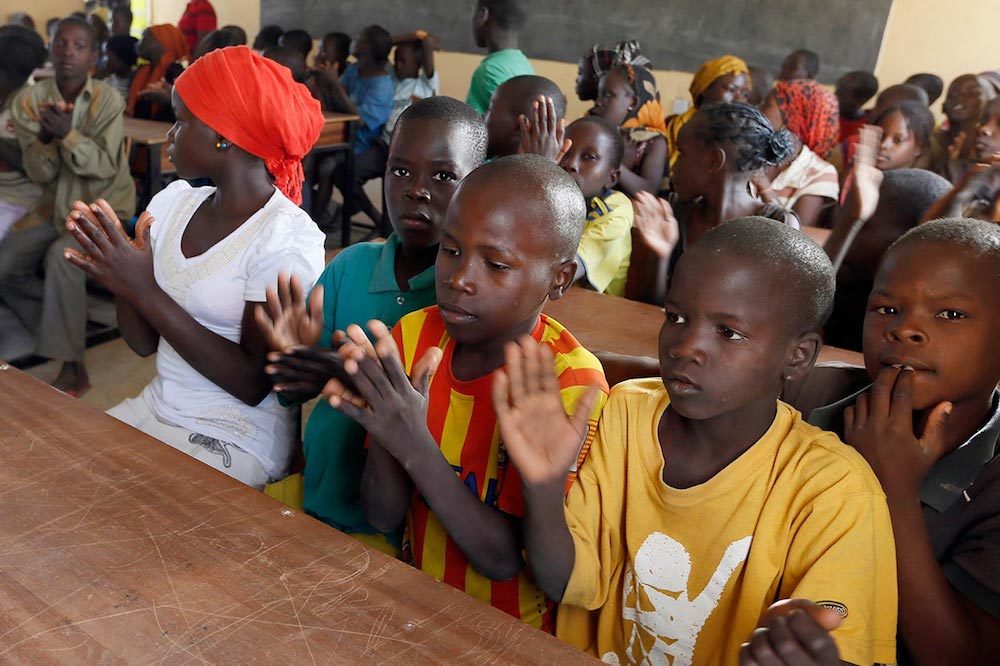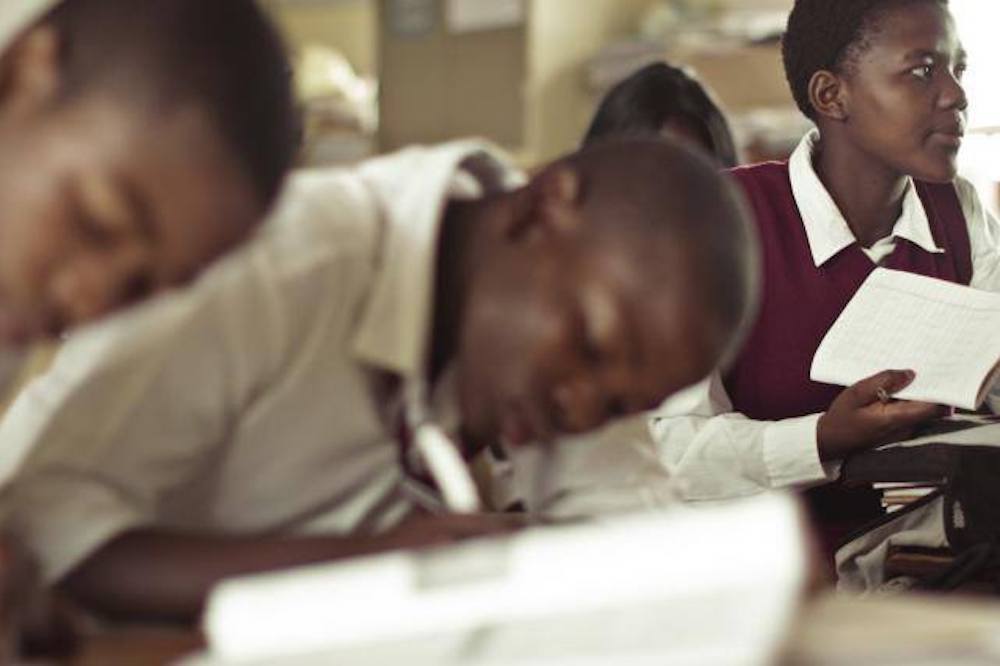
Safe schools and bonuses to lure teachers back after attacks
Children in conflicts, Education in emergencies, Safe schools
Education International tells how better security among key moves to get children back into school in Mali, Nigeria and Congo.
Teachers who fled violence in northern Mali are being encouraged back through financial incentives and new protection schemes.
Thousands of teachers left after Islamist rebel insurgency in 2012, which resulted in attacks on schools and people fleeing south for safety.
But new initiatives to promote safe education are trying to bring teachers back to the region, according to Education International (EI).
EI is a global organisation representing 30 million teachers, academics and education personnel in 170 countries and territories.
Safe schools is a main focus of its work. In an interview with Their News, EI spoke about new projects in Africa that are trying to protect teachers and students.
They include initiatives in Congo, Nigeria and Mali – three countries that have witnessed violent attacks on schools, resulting in millions of children losing the right to education.
Mali and Nigeria are among 80 countries have signed the Safe Schools Declaration – a commitment to keep students, teachers and their schools free from the fear of violence and occupation during armed conflict.
Theirworld and others have been campaigning for schools to be safe places for children to learn and be with their peers. While the majority of the 15 current members of the Security Council have signed the Safe Schools Declaration, only two of the five permanent members have done so.
Education International said teachers in Mali were being offered bonuses of 15% to return to the north of the country.
Dominique Marlet, a senior coordinator with EI, said: “In Mali, there was an Islamist insurgency in the northern part of the country, so for a couple of years schools were closed.
“For the last two years education has resumed but all the teachers who were in the north moved to the capital (Bamako) or the southern part of the country where they were reallocated schools.
“In the last two years schools have reopened in the north and the education union has negotiated with the authorities to have specific incentives to encourage teachers back.
“These are financial incentives. Teacher wages in Mali are very low so they are getting a bonus of 15% on top of their wage, if they agree to go back to the northern region.
“There are also some protection schemes to prevent any acts of violence. The protection schemes are dependant on the local situation, so these are not standard. These are being discussed in the context of a school’s own situation.”
While the north is more stable now, violence has spread to other parts of Mali as the government struggles against Islamist terror groups.

It was reported earlier this year that almost 400 schools in central Mali had closed since Islamist militants expanded from the desert north.
Today there are more attacks in the Mopti and Segou regions than in the five northern regions combined.
One of the most dangerous militant groups in the Mopti region is the Macina Liberation Front. Dominated by the Fulani, the biggest ethnic group in central Mali, it merged with three other organisations last year to form the Group for the Support of Islam and Muslims, an affiliate of al-Qaeda.
Congo and Nigeria have also suffered extraordinary levels of violence and attacks on schools.
EI said it has been helping to provide professional development for teachers who work in conflict zones.

Marlet said: “The efforts of education unions have been to reach out to members, talking to them to identify the situation locally, what are the needs, and the best way to help.
“Some of the work is about creating an awareness in the communities that are targeted by violence – so that education stakeholders, parents, teachers and student themselves can reflect together what can be done to improve the situation.
“In Congo, for example, community watches have been put together so there can be more monitoring in the vicinity of schools, and major routes that children and teachers take to go to school. Teachers’ houses are also monitored to prevent any attacks.
“In terms of professional development, it’s more on behavioural attitudes for teachers so that they don’t take any risks. For example, they should not got to school alone and female teachers should be looked after.
“They should also look out for children, take them back to the village together and also talk to parents about safety and security.

“In some schools, they have developed a code of conduct, so bullying and harassment are not acceptable including sexual harassment.”
Over the years, EI has consistently condemned the murders of children and teachers who were killed in education environments.
In 2010, EI was a co-founder of the Global Coalition to Protection Education from Attack, to encourage governments to endorse the Guidelines for Protecting Schools and Universities from Military Use During Armed Conflict.
EI has also supported anti-bullying campaigners to create awareness in schools and communities about bullying and harassment prevention.
EI says: “Harassment includes third-party harassment and cyber-harassment, where the internet and social networks are used to attack students and teachers.
“EI is also working with UNESCO and UN Women in a campaign against gender-based violence. Students are victims and perpetrators of this violence – but victims also include teachers and other school staff. Gender-based violence may have long-term impact. It may limit victims’ participation in the economy and in society.
“Schools and all other educational institutions should never be plagued with fear but should be safe and secure spaces for workers and learners alike.”
More news

Theirworld initiative helps to deliver $30m of computers to Ukrainian children
